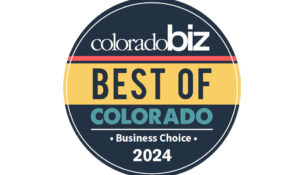Education Report: Degrees of Certainty
Local schools boost efforts to prepare students for the workforce
Nora Caley //December 13, 2017//


Education Report: Degrees of Certainty
Local schools boost efforts to prepare students for the workforce
Nora Caley //December 13, 2017//

Employers want the whole package in their fresh-from-college hires: young people who can write well, problem-solve, work effectively with a team and have a strong work ethic to boot, according to a recent survey by the National Association of Colleges and Employers.
And Colorado colleges and universities aim to give them just that.
“Various sectors have expressed the same desire to have graduates of our program be ready to fit into their companies and their cultures,” says Robert Park, Ph.D., director of the Advanced Manufacturing Sciences Institute at Metropolitan State University of Denver, “not just providing them with technical knowledge appropriate for their fields, but soft skills.”
For Metro’s new Advanced Manufacturing Sciences (AMS) Bachelor of Science degree, students learn machine tool programming and product design, as well as problem-solving, teamwork and leadership. “Our partners are not looking for people coming out of school and saying, ‘I learned everything I need to know,’” Park says. “By indicating this is what’s happening, this is what you can expect, we are preparing our students accordingly.”

Companies are seeking graduates who can critically think, be independent, work efficiently on their own and do not need micromanagement, says Brent Vogel, director of the Center for Career and Professional Development at Regis University. “Employers say, ‘Give me students who are polished in those areas, and I can train them in software or sales.’”
Vogel says Regis University offers a core curriculum that encourages students to reflect on social justice issues by analyzing literature or movies through writing exercises, among other ways. Regis also expanded its Health Professions Career Fair and Pharmacy Career Fair and added a virtual career fair where students can log in, click on different “booths” and chat online with employers.
For some students, it’s never too early to prepare for the workforce. At Colorado State University, a faculty member worked with the career center to establish a for-credit summer workshop for rising sophomores. Employers offered case studies for the students, who gave presentations at the end of the session. “They took these theories and principles from the academic side of the house and applied them to a real world problem,” says Katie Flint, director of Employer Connections and Career Center Operations. “It also fulfilled their advanced writing composition requirement.”
Writing skills are important, says Sue Wyman, director of Business Career Connections at the University of Colorado Denver Business School. She says there is strong demand for accounting, finance, information systems, business analytics and marketing students who know how to write. “When we say, ‘What can we do to make our students more relevant?’ we hear, ‘Could you help them with email-writing skills?’” she says. “It’s very different from writing a report for class.” The curriculum includes writing classes, interview prep classes, and classes on how to set up a profile on LinkedIn.

Internships are also helping students examine their skill levels. At the University of Colorado Denver, students complete a pre- and post-internship skills and ability analysis in which they rate themselves on various soft skills. The employers also rate the students. “Students say, I think I am a 10 in my ability to receive feedback, and the employer says, ‘We thought you were a six,’” says Tony R. Smith, Ph.D., director of the CU Denver Experiential Learning Center. “This allows us to dig deeper.”
Smith says the center encourages students to apply for internships at companies they might have overlooked. “I understand you want to work for Google, and that sounds cool,” he says. “But here locally, we have connections with think tanks and startups, and you have to be flexible.”
At Turing School of Software & Design, there is continuous employer engagement so that the school can stay updated on market needs and the newest coding languages. Employers are invited to speak to students at lunch presentations in the school’s auditorium.
“We want them to come and talk about expectations, what their culture is, what are these other competencies,” says Courtney Haynes, development partnership manager. There is also a job shadowing program and a software platform in which students can communicate with alumni.
Coding schools are gaining momentum. In April, University College at the University of Denver launched its Coding Boot Camp. The popular 24-week program is designed for current IT professionals or career changers. “We have filled every cohort offered since April and just added two more cohorts for fall to meet the demand in the Denver area,” says Michael McGuire, dean of University College.

University College also has a new certificate and master’s concentration in Health Data Informatics and Analytics, a hot area right now. “Knowing how to transform data into actionable insights can have a major impact on improving health care deliverables and patient care,” McGuire says.
Colorado State University-Global Campus is also helping students enter these tech areas. Colorado is desperately in need of students in the areas of IT and cloud computing, says executive vice president Jon Bellum, so CSU Global added a cloud computing specialization to the Bachelor of Science in Information Technology and Bachelor of Science in Management Information Systems and Business Analytics degrees. The online school also will roll out a Master of Science in Data Analytics next spring. “It doesn’t make a difference what business you are in,” Bellum says. “They’re collecting so much data now, and these are scientists that can make the data talk.”
At the University of Colorado Boulder, the Division of Continuing Education and the Graduate School launched the Master of Science in Organizational Leadership (MSOL) program this fall. The fully online professional graduate program includes accelerated courses in business, communication and social sciences.
Business students have to be comfortable with technology, too. At CU-Boulder, the Leeds School of Business and the College of Engineering and Applied Science are building a bridge, literally and figuratively. The Koelbel Building is undergoing an expansion that will enhance programming and connect the schools to help engineering students gain business expertise and help business students become more adept at technology.
Another Leeds School initiative, End the Gap by 2020, aims to increase the number of women in business programs so they make up 50 percent of the students. “It’s not so much to fight over a fixed pie of women but to expand the population,” Leeds Dean Sharon Matusik says. “What we are hearing from partners is they want a more diverse workforce. They look to us as a talent pipeline.”
























